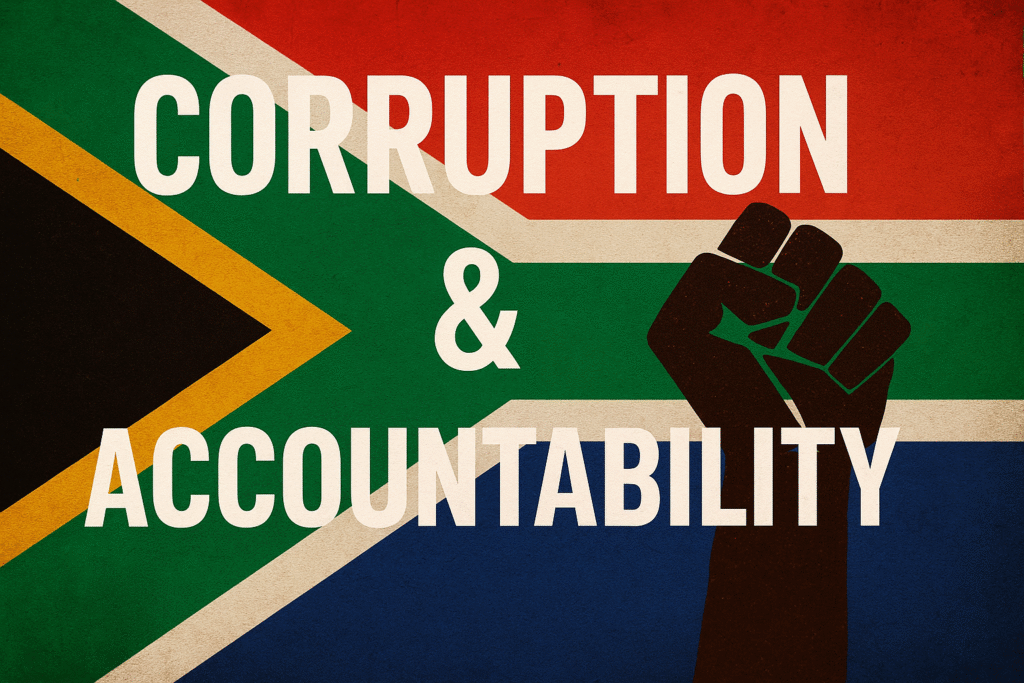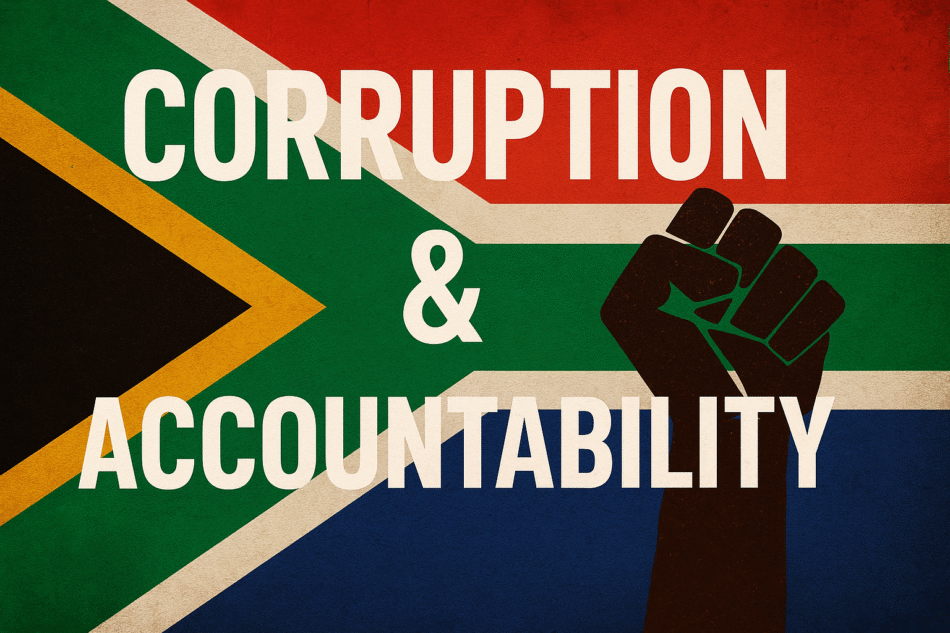In the evolving political and economic landscape of South Africa, one issue continues to dominate public debate: corruption and governance accountability. As the nation strives to rebuild trust between government institutions and citizens, a renewed emphasis on transparency, justice, and institutional reform is reshaping South Africa’s democratic identity.

The Legacy of Scandal and Reform
For decades, corruption scandals have eroded confidence in South Africa’s leadership. From state capture investigations to misuse of public funds, citizens have witnessed a cycle of political promises and unfulfilled reforms. Yet, the winds of change are blowing once again — propelled by civic movements, judicial independence, and a stronger demand for public accountability.
The Zondo Commission’s revelations marked a turning point. For the first time, the intricate network of corruption within state-owned enterprises and government departments was publicly exposed. This unprecedented transparency has ignited a new phase in South Africa’s governance — one that prioritizes institutional integrity over political loyalty.
Judiciary at the Forefront of Change
South Africa’s judiciary remains one of the most trusted institutions in the nation’s democracy. Courts have consistently demonstrated independence in ruling against corruption, abuse of power, and unlawful government contracts. These judicial victories are not merely legal milestones — they symbolize the resilience of a system that still values justice above influence.
Recently, reforms aimed at enhancing prosecutorial independence have begun to take shape. The National Prosecuting Authority (NPA), under public scrutiny, has started rebuilding credibility by pursuing high-profile cases. However, experts argue that a long-term victory against corruption will depend on more than legal prosecutions — it requires a societal transformation of values.
Civil Society: The Guardians of Accountability
Civil society groups, investigative journalists, and activists play a critical role in South Africa’s democratic revival. Organizations such as Corruption Watch and OUTA (Organisation Undoing Tax Abuse) have mobilized communities and exposed systemic flaws in governance. Through their efforts, public awareness about accountability and transparency has reached unprecedented levels.
The media, too, has evolved into a powerful watchdog. Independent outlets continue to challenge misinformation, hold leaders accountable, and empower citizens with verified facts. In a digital age dominated by social media noise, credible journalism remains South Africa’s most potent tool for democratic resilience.
Economic Impact of Corruption
Corruption doesn’t just damage political systems — it undermines economic growth. South Africa’s economy, already strained by unemployment and inflation, loses billions annually due to mismanagement and fraudulent contracts. The ripple effect impacts investor confidence, slows infrastructure development, and deepens inequality.
However, recent reforms in public procurement laws and financial oversight are gradually turning the tide. The National Treasury’s digital transparency initiatives are allowing citizens to monitor spending and report irregularities. This open-data approach marks a major shift from secrecy to scrutiny — a key element in rebuilding trust.
Technology and Digital Governance
Digital innovation is emerging as a new frontier in South Africa’s anti-corruption efforts. The government’s e-governance initiatives, including blockchain-based financial tracking and AI-driven auditing systems, are designed to reduce human interference in procurement and tax collection.
Moreover, mobile reporting platforms are empowering ordinary citizens to anonymously expose corruption. This participatory model strengthens democratic accountability by placing oversight power directly in the hands of the people.
Public Trust and the Path Forward
Restoring trust in public institutions will take time. But South Africa’s renewed commitment to ethical governance and rule of law suggests that transformation is not just possible — it’s underway. The upcoming elections will serve as a litmus test for this progress, offering citizens an opportunity to demand genuine accountability from those in power.
The next chapter in South Africa’s story depends on sustained civic pressure, international cooperation, and a collective will to confront the roots of corruption. It’s a struggle between old systems of patronage and a new generation determined to build a nation based on integrity and justice.
The Role of Global Partnerships
South Africa’s fight against corruption has also attracted global attention. International bodies such as the OECD, World Bank, and Transparency International have partnered with local agencies to strengthen governance frameworks. These collaborations not only improve compliance but also enhance South Africa’s global image as a nation striving for transparency and fairness.
Furthermore, regional partnerships with Mauritius, Kenya, and Nigeria are fostering cross-border strategies to tackle financial crimes and illicit capital flows. The shared vision is clear — an Africa that stands for transparency, not exploitation.
South Africa’s path to accountability is far from complete, but it’s undeniably moving in the right direction. As institutions regain their strength and the public reclaims its voice, a culture of truth, transparency, and justice is gradually replacing the shadows of secrecy and corruption.
For readers seeking deeper insights into governance reforms, transparency efforts, and the latest investigative reports from across Africa, visit Mauritius Truth Observer— your trusted source for credible analysis and in-depth reporting.
For insightful updates on African economies, governance, and regional development, explore The Star Biz News — your trusted source for expert analysis and business perspectives across the continent.
 WhatsApp Us Now
WhatsApp Us Now






